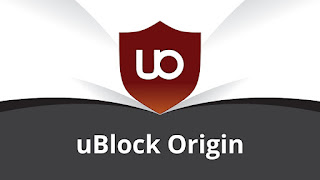

Ublock orgin plus#
UBO also refuses to take money from companies to whitelist certain “acceptable ads” for-profit, unlike other ad blockers, including Adblock Plus (ABP). It’s open-source and transparent, but even better, the developer Raymond Hill refuses to take donations and claims he has no intent to ever monetize uBO. UBlock Origin is one of the safest and most trustworthy content filtering add-ons available. Both tools allow you to pick and choose which website elements to remove from a website, but the Zapper is temporary while the Picker is permanent. UBO provides two powerful tools to allow users to perform “cosmetic filtering.” These tools are the Element Zapper and the Element Picker. These scam versions steal user data for profit. There are several add-ons pretending to be uBO, including and uBlock (without the Origin). Note: When installing uBO, make sure that the add-on is uBlock Origin. Unfortunately, it’s no longer available for Apple’s Safari.
Ublock orgin android#
UBO is available on the Google Chrome web store, on Chromium, Microsoft Edge, Opera, and as a Mozilla Firefox add-on (including the Android and iOS versions). Hard mode is like medium mode on steroids and is likely to cause more website breaks for a final small gain in security. This is the recommended mode for privacy-savvy users.
Ublock orgin 64 bits#
Google's alternative proposal, part of its "Privacy Sandbox" initiative, calls for an identifier field capable of storing 64 bits of data – considerably more than the integer 64.Īs the Electronic Frontier Foundation has pointed out, this enables a range of numbers up to 18 quintillion, allowing advertisers to create unique IDs for every ad impression they serve, information that could then be associated with individual users.Medium mode is for advanced users and requires in-depth knowledge of the add-on, enabling users to manually decide what content is filtered and what is allowed. Hill, uBO's creator, recently confirmed to The Register that's still the case.Įven if Chrome were to implement a DNS resolution API, Google has made it clear it wants to maintain the ability to track people on the web and place cookies, for the sake of its ad business.Īpple's answer to marketer angst over being denied analytic data by Safari has been to propose a privacy-preserving ad click attribution scheme that allows 64 different ad campaign identifiers – so marketers can see which worked. "uBO is now equipped to deal with third-party disguised as first-party as far as Firefox's browser.dns allows it," Hill wrote, adding that he assumes this can't be fixed in Chrome at the moment because Chrome doesn't have an equivalent DNS resolution API.Īeris said, "For Chrome, there is no DNS API available, and so no easy way to detect this," adding that Chrome under Manifest v3, a pending revision of Google's extension platform, will break uBO. Firefox supports an API to resolve the hostname of a DNS record, which can unmask CNAME shenanigans, thereby allowing developers to craft blocking behavior accordingly.

Two days ago, uBlock Origin developer Raymond Hill deployed a fix for Firefox users in uBlock Origin v1.24.1b0. The technique is also discussed in a 2010 academic research paper, "Cookie Blocking and Privacy: First Parties Remain a Risk," by German Gomez, Julian Yalaju, Mario Garcia, and Chris Hoofnagle.

Using DNS records to make a third-party domain appear to be first-party was documented previously in a 2014 paper by Lukasz Olejnik and Claude Castelluccia, researchers with Inria, a French research institute. Mozilla says Firefox won't defang ad blockers – unlike a certain ad-giant browser READ MORE Aeris added that DNS delegation clearly violates Europe's GDPR, which "clearly states that 'user-centric tracking' requires consent, especially in the case of a third-party service usage."Ī recent statement from the Hamburg Commissioner for Data Protection and Freedom of Information in Germany notes that Google Analytics and similar services can only be used with consent. In a conversation with The Register, Aeris said Criteo, an ad retargeting biz, appears to have deployed the technique to their customers recently, which suggests it will become more pervasive. As Eulerian explains on its website, "The collection taking place under the name of the advertiser, and not under a third party, neither the ad blockers nor the browsers, interrupt the calls of tags." But wait, there's moreĪnother marketing analytics biz, Wizaly, also advocates this technique to bypass Apple's ITP 2.2 privacy protections.Īs does Adobe, which explains on its website that one of the advantages of CNAME records for data collection is they " you to track visitors between a main landing domain and other domains in browsers that do not accept third-party cookies."


 0 kommentar(er)
0 kommentar(er)
